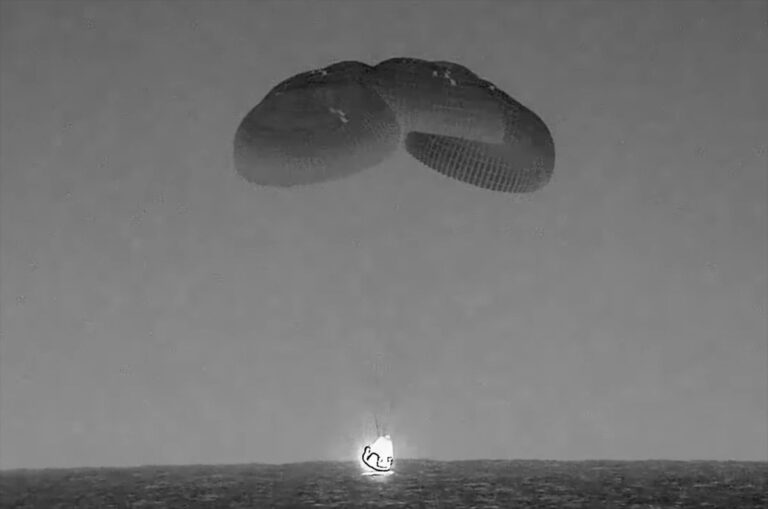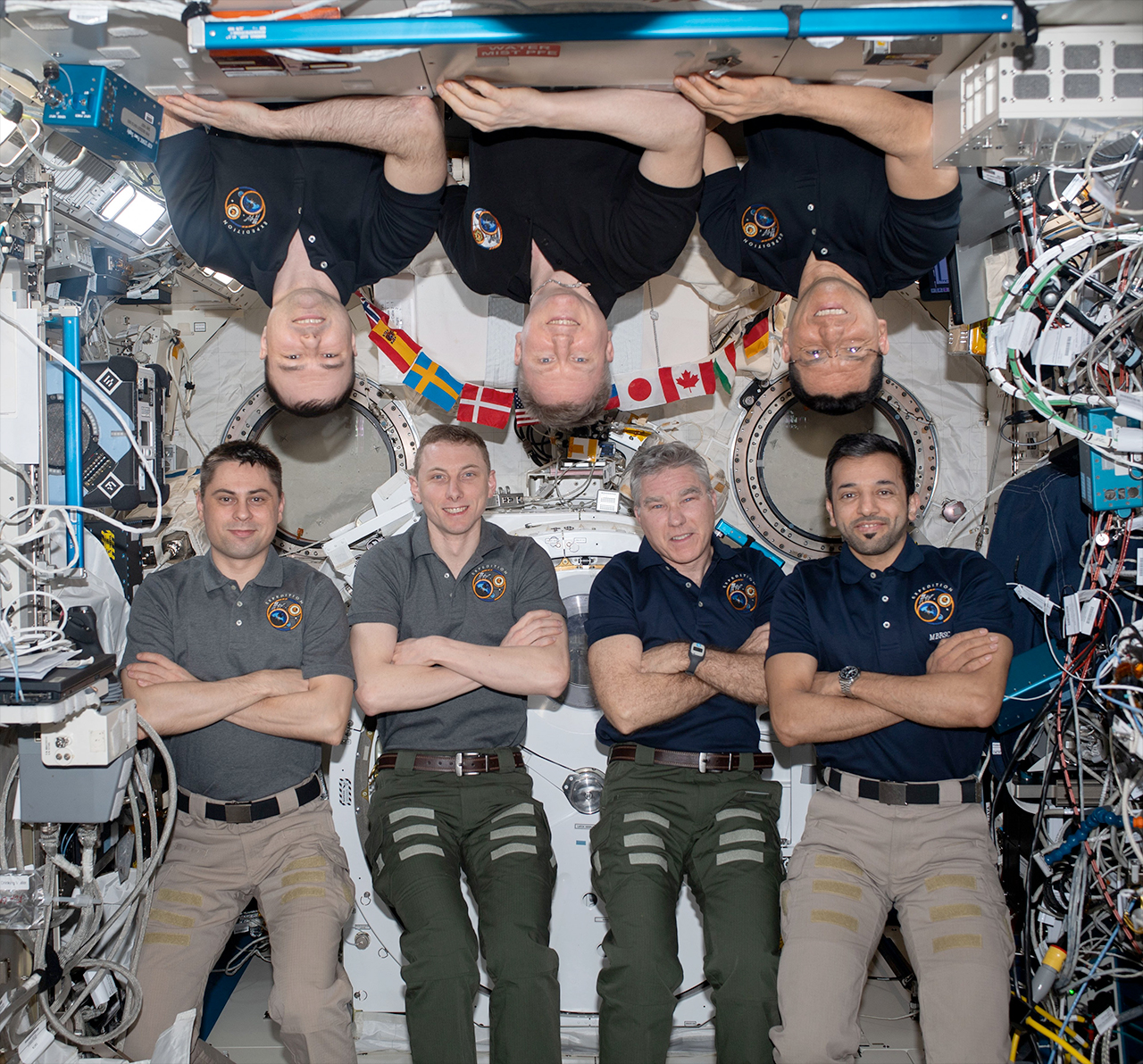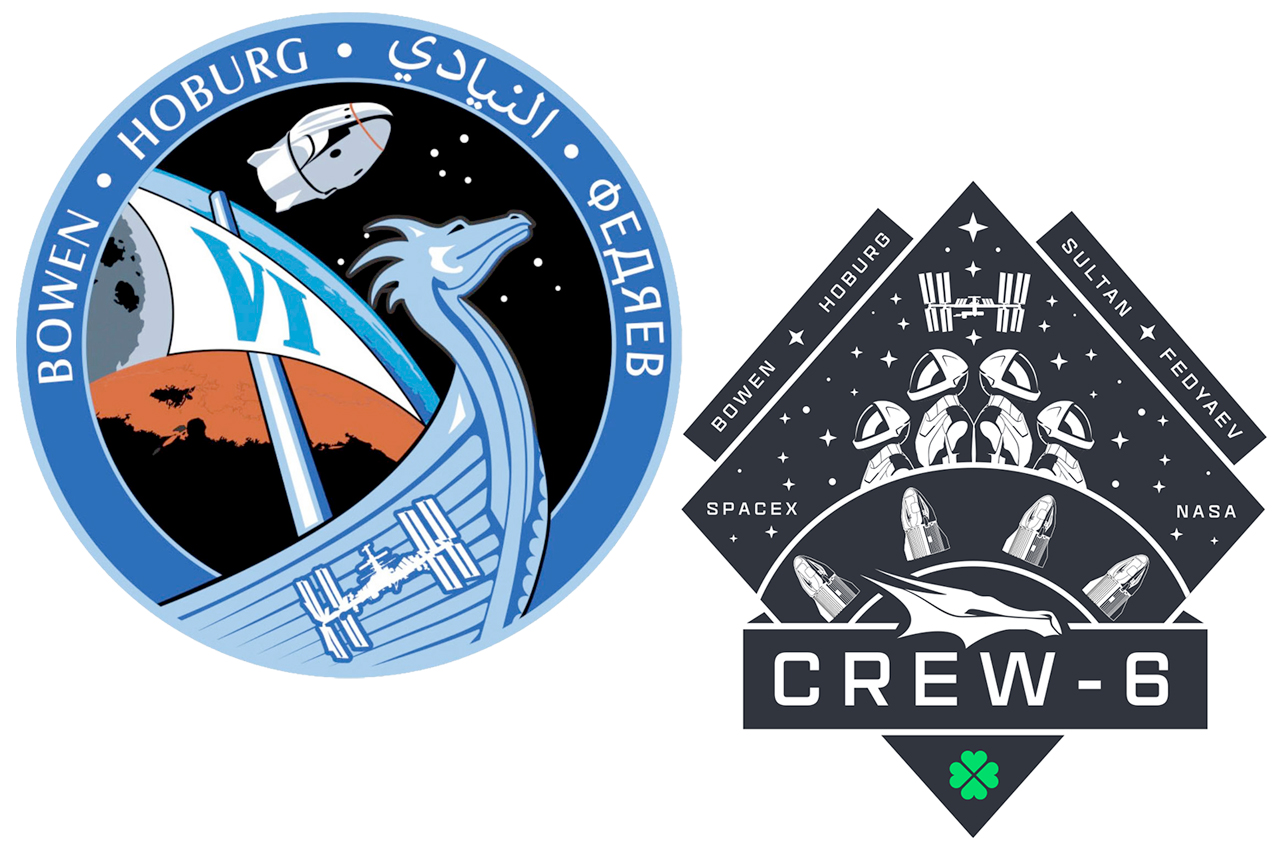
[ad_1]
Four astronauts are back on Earth, having each completed their first long-duration spaceflight on the International Space Station (ISS).
Stephen Bowen and Warren “Woody” Hoburg of NASA, Sultan AlNeyadi of the UAE (United Arab Emirates) and Andrey Fedyaev of Russia’s federal space corporation Roscosmos, collectively SpaceX‘s Crew-6, splashed down on board the company’s Dragon spacecraft “Endeavour” at 12:17 a.m. EDT (0417 GMT) on Monday (Sept. 4) in the Atlantic Ocean off the coast of Jacksonville, Florida. Of the four, only Bowen had flown in space before.
“When we showed up here six months ago, it was a new experience for all of us,” said Bowen during a brief farewell ceremony aboard the station on Thursday (Aug. 31). “I had been to space, but I’ve never been on a long-duration mission. This has been an absolutely incredible experience, and it’s been a great opportunity to watch my amazing crewmates as they’ve come along.”
Related: SpaceX Crew-6 astronauts say goodbye from the ISS

Having launched on March 2, the Crew-6 astronauts’ landing wrapped their 186-day mission, during which they served as Expedition 68 and Expedition 69 flight engineers aboard the International Space Station.
They had originally been scheduled to come home on Sunday morning (Sept. 3), but poor weather conditions extended their stay in orbit by a day.
“It’s certainly been the experience of a lifetime and a real honor to get to spend six incredibly short-feeling months living and working aboard this incredible orbiting outpost,” said Warren at the same ceremony. “I think we got a lot done. We started off with SpaceX [Commercial Resupply Services or CRS] 27 right away, a cargo vehicle full of science. Later, we had the SpaceX [CRS] 28 mission, as well we welcomed a visiting Axiom crew on board.”
“We did three spacewalks amongst our Crew-6. We berthed a Cygnus [cargo] vehicle. We did a lot of maintenance, and hopefully we’re leaving the space station just a little bit better than we found it,” said Warren.
The four astronauts departed the space station on Sunday, with the autonomous undocking of the Dragon Endeavour from the space-facing port of the Harmony node at 7:05 a.m. EDT (1105 GMT).
For AlNeyadi, the flight was not only his first, but the first long-duration expedition by an Arab and by an Emirati. He is only the second UAE astronaut to fly, after the brief, week-long mission to the space station by Hazza AlMansoori in 2019. The first Arab in space, Prince Sultan Al Saud of Saudi Arabia, launched on a NASA space shuttle in 1985.
“We had a good outreach with many people around the world, so it was really amazing —especially for my region,” said AlNeyadi. “I come from a place where human spaceflights were stopped for more than 30 years, and I felt that I was obligated to show what’s happening with the station. I think it was a small boost towards spreading the enthusiasm in our region.”
AlNeyadi was responsible for choosing the Crew-6 zero-g indicator, a small plush doll of the UAE astronaut program’s mascot “Suhail,” which also returned to Earth on Monday on the Dragon.
Fedyaev is only the second Russian cosmonaut and first Russian man in history to purposely return from space to a water landing. His ride aboard the SpaceX spacecraft was part of a seat swap agreement between NASA and Roscosmos.

SpaceX recovery boats, including the “Megan” — which was named after NASA astronaut Megan McArthur, one of the first women to fly on a SpaceX Dragon — were staged near the landing point and were quickly on hand to help retrieve the spacecraft and its crew from the water.
With Crew-6 back on Earth, the space station’s Expedition 69 continues with NASA astronauts Frank Rubio and Jasmin Moghbeli, European Space Agency (ESA) astronaut Andreas Mogensen, Japan Aerospace Exploration Agency (JAXA) astronaut Satoshi Furukawa and Roscosmos cosmonauts Sergey Prokopyev, Dmitry Petelin and Konstantin Borisov. Expedition 70 will begin when Russia’s Soyuz MS-23 spacecraft departs the station in late September with Prokopyev, Petelin and Rubio, the latter setting a new U.S. record for time on a single space mission at 371 days.
Crew-6 was SpaceX’s sixth crew rotation flight for NASA, seventh crewed spaceflight in support of the U.S. space agency and ninth human spaceflight in the company’s history. Crew-6 marked the fourth flight of Endeavour, which earlier flew the Demo-2, Crew-2 and Axiom-1 missions to and from the space station.
Follow collectSPACE.com on Facebook and on Twitter at @collectSPACE. Copyright 2023 collectSPACE.com. All rights reserved.
[ad_2]